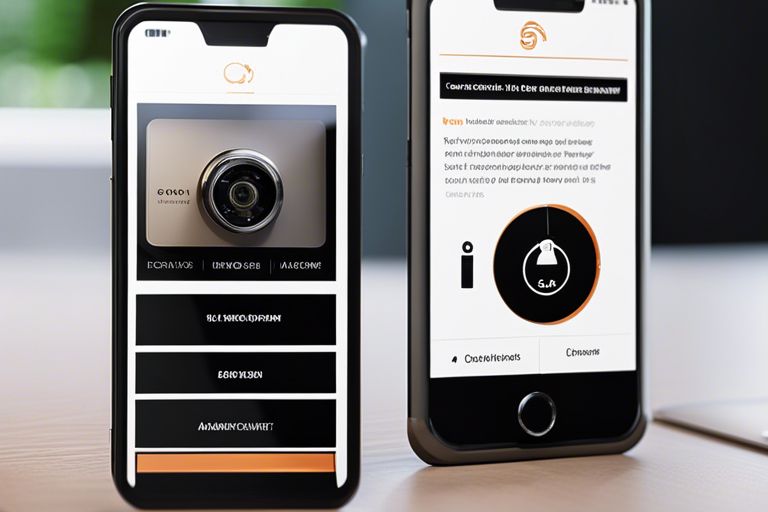Protecting your small business from cyber threats is crucial in today’s digital landscape. With the rise in online attacks targeting businesses of all sizes, it is crucial to invest in the right security tools to safeguard your sensitive data and information. In this blog post, we will explore some of the best security tools specifically designed for small businesses, helping you take proactive steps towards enhancing your cybersecurity posture and preventing potential breaches.
Key Takeaways:
- Comprehensive Security Suite: Utilise security tools that offer a full range of protection such as anti-malware, firewall, encryption, and intrusion detection.
- User-Friendly Interfaces: Opt for tools with easy-to-use interfaces to ensure smooth integration and operation within your small business environment.
- Regular Updates and Support: Choose security tools that provide frequent updates and reliable customer support to stay ahead of evolving threats.
- Cloud-Based Security Solutions: Consider cloud-based security solutions for scalability, flexibility, and cost-effectiveness in safeguarding your business data.
- Employee Training and Awareness: Invest in educating your employees on cybersecurity best practices to enhance the overall security posture of your small business.
Cybersecurity Solutions
Antivirus and Anti-Malware Software
When considering protecting your small business from cyber threats, using reliable antivirus and anti-malware software is vital. These tools are designed to detect, prevent, and remove malicious software that can compromise the security of your system and data. Look for reputable software providers that offer regular updates and strong protection against a wide range of threats.
Firewalls and Network Security
Firewalls act as a barrier between your internal network and the external internet, monitoring and controlling incoming and outgoing network traffic based on predetermined security rules. Implementing a firewall is crucial for small businesses to safeguard their sensitive information and prevent unauthorised access to their networks. Alongside firewalls, businesses should also consider using virtual private networks (VPNs) and other network security measures to enhance their overall cybersecurity posture.
Physical Security Tools
Surveillance Systems
Surveillance systems are necessary for small businesses to monitor their premises and deter potential security threats. Modern surveillance systems offer high-definition cameras with night vision capabilities and remote access via mobile devices. By investing in surveillance systems, small businesses can enhance their overall security and have peace of mind knowing that their property is being monitored 24/7.
Access Control Systems
Access control systems are vital for restricting entry to authorised personnel only, thus preventing unauthorised access to sensitive areas within a business premises. These systems can include keycard access, biometric scanners, or keypad entry systems. By implementing access control systems, small businesses can effectively manage who is allowed to enter specific areas, track movements, and enhance overall security measures.
Data Protection and Recovery Tools
Encryption Software
Encryption software is imperative for small businesses to protect sensitive data by encoding information in a way that only authorised users can access it. By using encryption, businesses can prevent data breaches and safeguard their confidential information.
Backup Solutions
Backup solutions are crucial for small businesses to ensure the continuity of their operations in case of data loss or cyber-attacks. These tools create secure copies of important files and data, which can be easily restored in the event of any unexpected incidents. Implementing a reliable backup solution is an integral part of a comprehensive data protection strategy.
Security Management and Training
Employee Security Awareness Training
Employee security awareness training is crucial for small businesses to educate their staff on the latest cybersecurity threats and best practices. This training helps employees recognise phishing emails, avoid social engineering attacks, and understand the importance of strong passwords. By investing in regular security awareness sessions, businesses can significantly reduce the risk of data breaches and cyber attacks.
Security Policy Management Tools
Security policy management tools are vital for small businesses to effectively enforce security policies across their organisation. These tools automate policy creation, distribution, and enforcement, ensuring that all employees are aware of security protocols and adhere to them. By using security policy management tools, businesses can streamline their compliance efforts and enhance overall cybersecurity posture.
Security policy management tools often include features such as policy templates, real-time policy updates, and compliance reporting. These tools provide small businesses with a centralised platform to manage and track security policies, making it easier to maintain a secure working environment.
The Best Security Tools for Small Businesses
In terms of safeguarding sensitive data and systems in small businesses, investing in the right security tools is crucial. From antivirus software and firewalls to encryption tools and secure email services, there are various options available to protect your business from potential cyber threats. By implementing a strong combination of these security tools, small businesses can significantly enhance their cybersecurity posture and mitigate the risk of cyberattacks. Bear in mind, prevention is always better than remediation when it comes to cybersecurity, so make sure to choose the best security tools that suit your business needs and budget.
FAQ
Q: What are the best security tools for small businesses?
A: The best security tools for small businesses include antivirus software, firewalls, encrypted communication tools, security monitoring systems, and secure password managers.
Q: Why is it important for small businesses to invest in security tools?
A: Small businesses are often targeted by cybercriminals due to their perceived vulnerabilities. Investing in security tools helps protect sensitive data, prevent financial losses, and maintain customer trust.
Q: How can antivirus software help small businesses improve their security posture?
A: Antivirus software helps small businesses detect and remove malware, viruses, and other online threats. It provides real-time protection for devices and networks, reducing the risk of cyber attacks.
Q: What role do firewalls play in enhancing the security of small businesses?
A: Firewalls act as a barrier between a small business’s internal network and external threats. They monitor incoming and outgoing network traffic, block suspicious activities, and prevent unauthorised access to sensitive information.
Q: How can small businesses ensure the effectiveness of their security tools?
A: Small businesses can ensure the effectiveness of their security tools by regularly updating software, conducting security audits, providing employee training on cybersecurity best practices, and implementing multi-factor authentication for added protection.






